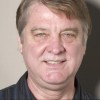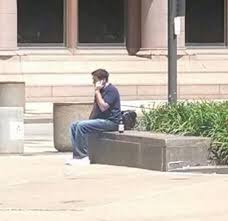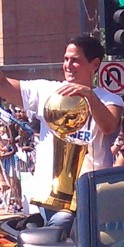 In the four years since their unlikely 2010-11 championship season, the Mavericks have made the playoffs three times, missed them once, but have not advanced past the first round. In those three playoff series, they have a 4-12 record.
In the four years since their unlikely 2010-11 championship season, the Mavericks have made the playoffs three times, missed them once, but have not advanced past the first round. In those three playoff series, they have a 4-12 record.
That record has made them the poster children for second-guessers because after winning the title, owner Mark Cuban and general manager Donnie Nelson decided to gamble on greatness rather than being deluded by a perfect storm.
 The criticism of the Mavericks – particularly locally in Dallas – is that they broke up a championship team for no good reason when they declined to sign several free agents after the championship season.
The criticism of the Mavericks – particularly locally in Dallas – is that they broke up a championship team for no good reason when they declined to sign several free agents after the championship season.
The most important was center Tyson Chandler, who received only a one-year offer that was easy to reject because he got a lucrative four-year $60 million offer from the Knicks.
J.J. Barea had also been a key player, particularly in the Finals when he moved into the starting lineup and in the last two games – both Dallas victories – and averaged 16 points, 5 assists and shot 13-of-23 from the field. The Mavericks offered him a one-year deal; he signed a four-year, $18 million deal in Minnesota.
Under Cuban, the Mavericks have never been cheap, so it wasn’t the money. Rather it was the glut of premier free agents who were going to be available. If the Mavericks were tied into long-term contracts, they could not compete for players like Dwight Howard and Deron Williams. And the Mavericks thought the credibility of a championship and the presence of Dirk Nowitzki at his peak would attract premium free agents.
Plus there was the reality of exactly how good the Mavericks really were. What critics failed to remember were the low expectations for the Mavericks at the beginning of the 2010-11 regular season and playoffs. In the previous season, the Mavericks had won 55 games, finished as the second seed in the West, but lost a first-round series to the seventh-seeded Spurs in six games.
The Mavericks acquired Chandler from Charlotte in the off-season, but he had missed 68 games with injuries the previous two seasons and certainly was not seen as the final piece of a championship puzzle.
No one was predicting before the season that the Mavericks were serious contenders for a title, not with the first-round loss to the Spurs the previous year.
Even a 57-25 record in the 2010-11 regular season did nothing to create respect locally or nationally. In fact, it was popular to predict third-seeded Dallas would lose its first-round series to the sixth-seeded Blazers.
After the Mavericks took care of Portland in six games, however, they met the Lakers, who had won the previous two titles. You can imagine how many seers were predicting success for Dallas against Kobe Bryant, Pau Gasol and Phil Jackson.
 The Mavericks won in a spectacular four-game sweep, then took care of the talented but youthful Oklahoma City Thunder and stunned the Heat in Year 1 of LeBron.
The Mavericks won in a spectacular four-game sweep, then took care of the talented but youthful Oklahoma City Thunder and stunned the Heat in Year 1 of LeBron.
There actually were media types who picked against the Mavericks in all four rounds, which Cuban and Nelson understood. They knew after the playoffs that everything had gone right for their team. When they objectively looked at the NBA, the Spurs, Lakers, Thunder, Heat, Bulls and Celtics had more talent.
So while they understood that the downside of gambling is that you can lose, the upside of having younger, healthier star players was a risk they felt could pay off big.
It has not.
This season, their run of misfortune continued and it was, again, after they seemed to have the right approach as evidenced by their transactions beginning last summer:
June 25: Acquired Tyson Chandler in a trade with the Knicks.
July 14: Signed free agent Chandler Parsons.
July 21: Signed free agent Richard Jefferson.
September 23: Signed free agent Charlie Villanueva.
October 29: Signed free agent J.J. Barea.
December 18: Acquired Rajon Rondo in a trade with the Celtics.
February 18: Signed free agent Amar’e Stoudemire.
Parsons is a second-tier free agent, but a good one who cost the Mavericks money and no future assets. Chandler gave them a top center. Veterans Jefferson, Villanueva, Barea and Stoudemire gave them depth. And Rondo gave them a star.
Or so they thought.
 Rondo never seemed comfortable as a Maverick, had his problems with coach Rick Carlisle, and finally seemed to simply give up in a playoff game. His teammates were so nauseated by his behavior that they refused to allot him a playoff share, according to the Dallas Morning News.
Rondo never seemed comfortable as a Maverick, had his problems with coach Rick Carlisle, and finally seemed to simply give up in a playoff game. His teammates were so nauseated by his behavior that they refused to allot him a playoff share, according to the Dallas Morning News.
Despite the failed experiment, the Mavericks have not wavered in their belief the Rondo trade was a good gamble.
“It certainly wasn’t risk-free, but it was certainly worth the risk,” Nelson said. “If we would’ve had to do it all over again we would’ve pulled the trigger again.”
The same could be said for their approach after winning the title. It was unconventional, but instead of keeping the team intact to compete for championships, the Mavericks tried to build a long-term contender by breaking the team up so they could sign better players. That did not work, to the everlasting delight of those with crystal clear hindsight, and now the Mavericks face a very difficult future.
Parsons was able to play in only one game in the Houston series because of a microfracture in his right knee. It has been surgically repaired, but Parsons is unlikely to be ready for the start of the season.
Nowitzki and Devin Harris will be back, but Rondo is gone and Chandler and Barea are free agents. Leading scorer Monta Ellis can opt out of the last year of his contract and he is likely to leave.
(RELATED: SHERIDANHOOPS TOP 50 FREE AGENTS)
That leaves the Mavericks with no choice except to target free agents this offseason and in 2016. Unfortunately for them, Nowitzki will turn 36 in June and can no longer consistently carry a team offensively.
It’s always been difficult to understand why the Mavericks haven’t been more attractive to premium free agents. Nowitzki is one of the most selfless superstars, ideal as a teammate and headed for the Hall of Fame.
Cuban is perhaps the most player-friendly owner in professional sports history and is the essence of cool – even a TV star whether making guest appearances on Entourage or investing millions on Shark Tank.
But now Cuban, Nelson and the Mavericks – who, after winning one, can be happy only with competing for titles – find themselves in a situation where alternatives are limited. Four years ago, they remade their roster by choice, hoping to attract stars who would lead them to more titles.
But now they have no choice. If the Mavericks are going to remain relevant going forward, they must convince premium free agents to move to Dallas. In other words, they must do something they’ve been unable to do, even after winning a title.
Jan Hubbard has written about basketball since 1976 and worked in the NBA league office for eight years between media stints. Follow him on Twitter at @whyhub.
OKC LOOKING FOR THAT ELUSIVE MAGICAL COACH
DEBATING THE MVP DEBATE, HARDEN COMES OUT ON TOP
KOBE BRYANT A WASTE OF MONEY? LET”S WAIT AND SEE
ROY TARPLEY: GOOD GUY; SAD STORY
PROSPECTS BLEAK FOR DEREK FISHER; SHOULD HE OPEN AN IHOP?
ANY TRUTH TO GLOOM AND DOOM FORECASTS FOR SPURS?
CELEBRATING NAISMITH ON BASKETBALL’S 123RD ANNIVERSARY
MAGIC, LIKE MICHAEL, HAS A COMPETITION PROBLEM
TANKING USED TO BE SO MUCH MORE FUN
LAKERS ARE ALL KOBE, ALL THE TIME
DIRK NOWITZKI-LARRY BIRD: STILL NOT A VALID COMPARISON
MICHELE ROBERTS’ POSTURING REMINISCENT OF STERN
KYRIE WILL FIND OUT THAT LeBRON IS GOOD AT SHARING
SHOULD HARDEN TRADE STILL BE CURSED FOR THUNDER?
LAKERS ARE WORTHY OF, AHEM, PRIME TIME
A 44-MINUTE GAME? WHAT WOULD WILT SAY?
SMART MONEY IS ON THE SPURS